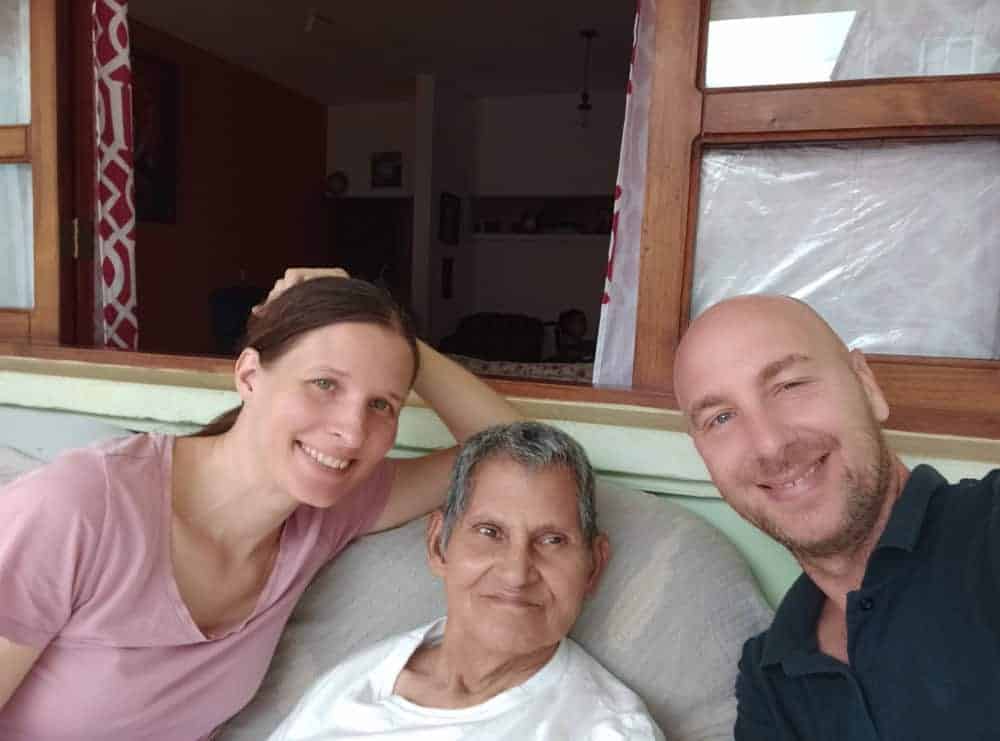A real story.
In a village near Hanoi, there was a leprous man. Since the history has been written, lepers are removed from society, marked and condemned.
That’s a disease that many still believe it is cursed and these people are dangerous and unworthy of ‘normal’ societies.
Ready for incineration
People in the village drove this leper to the nearby forest and prepared everything to burn him, just as they often do in a village like this one in Vietnam.
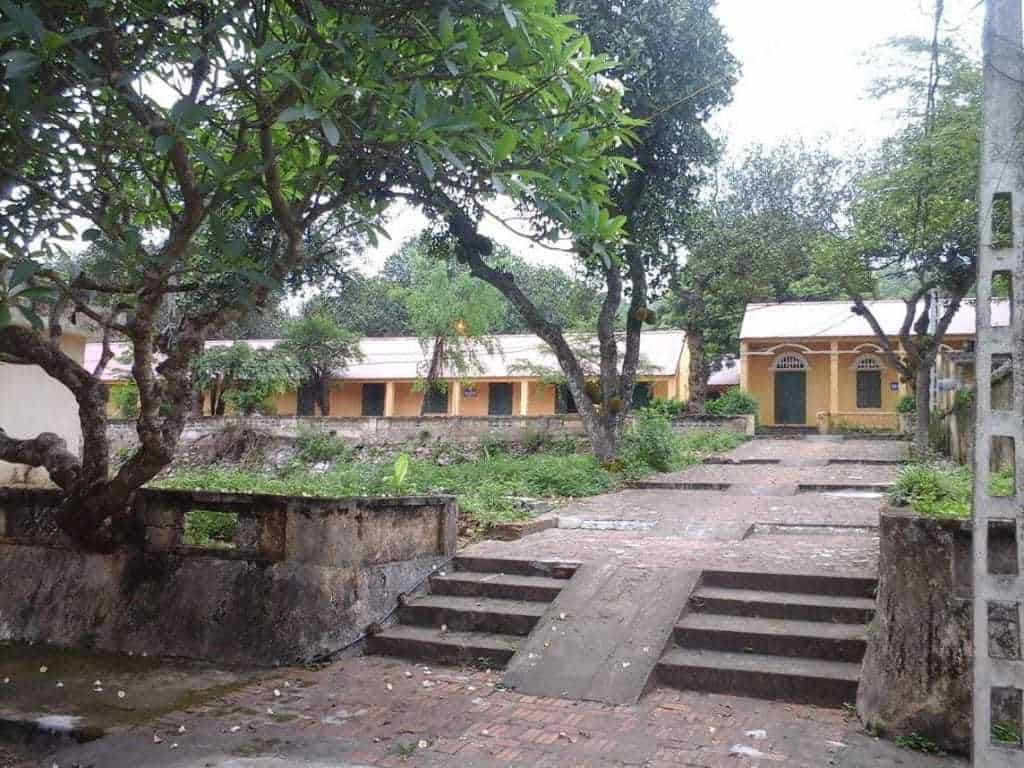
The disaster was solved by a local doctor who provided health care to people in the village.
He called Sister Xuan, who has been living and working for over thirty years in the leper centre, an hour away from the capital of Vietnam.
The nurse took the car to the village, found the leper and brought him to the community, to the safe place. This is not an event thirty years ago. It happened a few years ago.
Meeting with Jesuit
Our work in the Vietnamese kindergarten has come to an end. A 30-day visa has expired, and if we wanted to prolong it, it should be through a fairly complicated and expensive process. We decided to continue our journey to Laos.
But before we finally left Vietnam, we had contacted Jesuit Khan Duy.
We had presented him to the Operando and he responded with great pleasure. He invited us to the Bac Ninh Leprosy and Dermatology Hospital Center, where about 70 people were infected with leprosy, of which twenty are children. And that was the place where the lay sister Nguyen Thi Xuan worked.
A village of lepers
A big estate with a hospital, doctor’s office, a room for caregivers and many small houses in which lepers live. A small village surrounded by greenery, fruit trees and enriched with a large vegetable garden.
Sister Xuan greeted us kindly and invited us to her living and working place.
You can imagine how curious and honored we stand infromnt of a woman who gave all her life to people who were marginalized to the edge of society. She has been doing it without fear and with all her heart!
Among the poorest
Before she dedicated her life to the leprous people, Xuan was a kindergarten teacher. When she was thirty years old (today she is sixty), she seriously inquired about her vocation. She joined Sacred Hearth, a lay Catholic sisters, and felt a strong desire to work with the poorest.
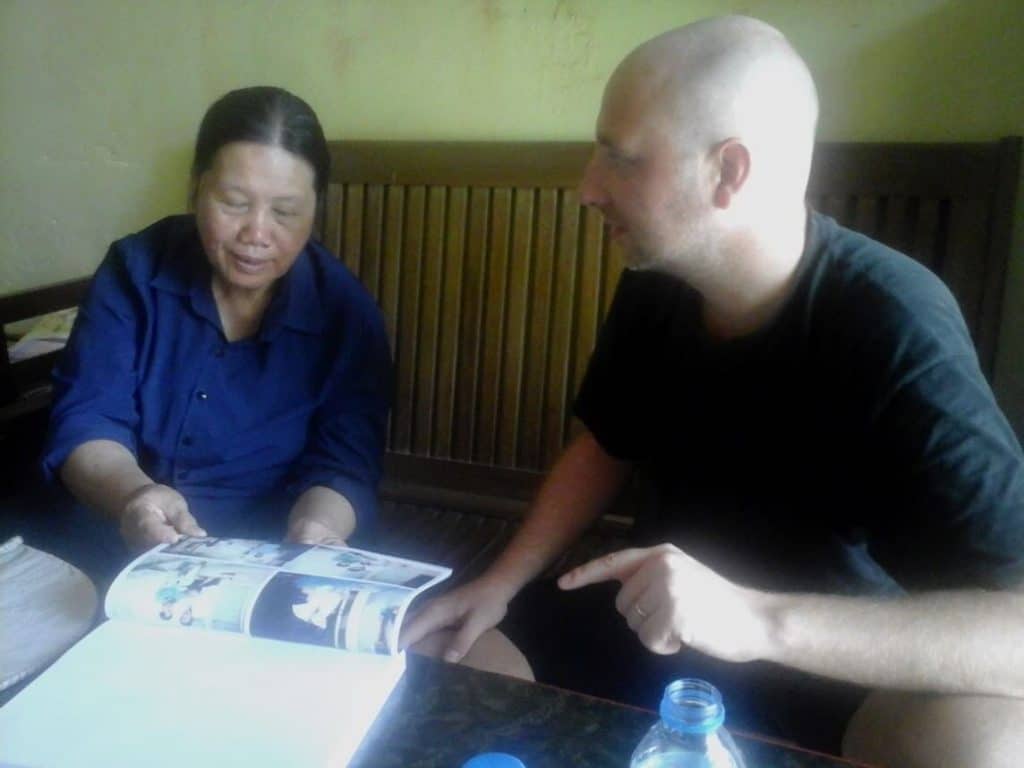
She then visited the late Bishop Paul-Joseph Phạm Ðình Tụng in Hanoi today (later he became a cardinal and is now in the process of beatification) and she asked him where the needs were the greatest. Bishop suggested her to work in this community. She followed his advice and moved to the estate in 1987.
Suspicious benefactor
The hospital was founded in 1913 by the Catholic Church. When the Communists were empowered in 1954, the administration of the institution was directly taken over by the government. The hospital staff was changed, but the work remained more or less the same.
“It was pretty hard at the beginning,” Xuan said. “I had the biggest problems with the communist authorities. Police officers constantly breathed into my collar, followed me, and they were suspicious. They visited me twice a week and wondered what I was doing there and why. They wanted to make sure that I hadn’t secretly acted against the regime.”
A persuasive Communist
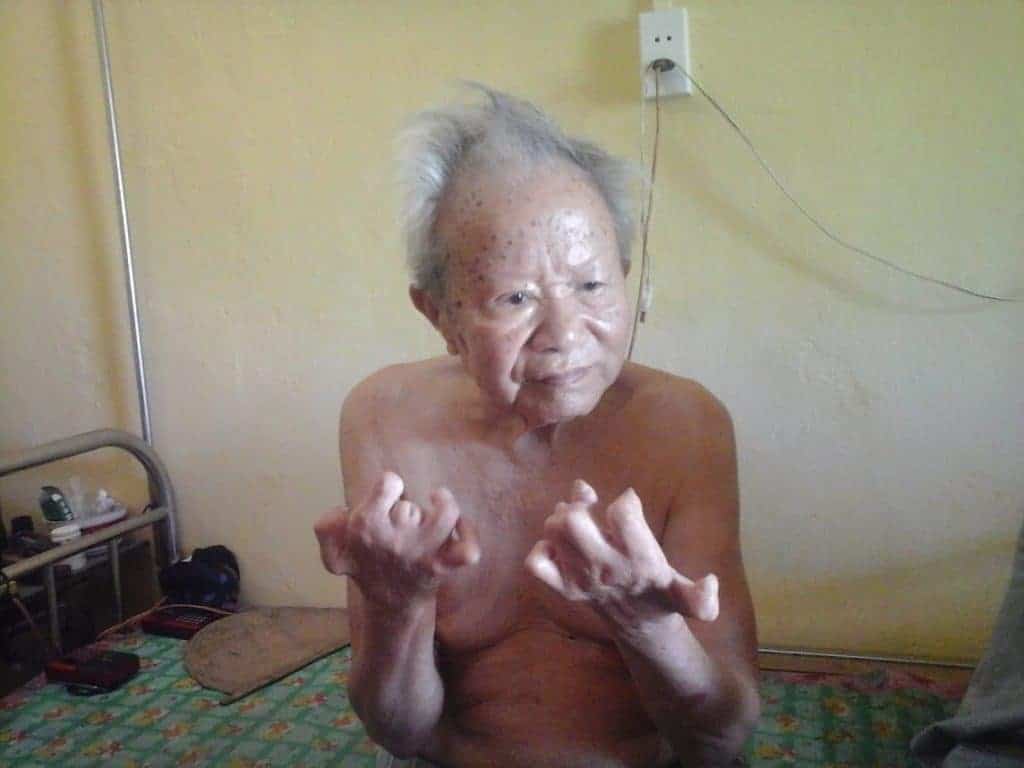
The pursuit ended after a well-known Communist came to the community due to illness.
He became good friends with Sister Xuan, and soon after his arrival, he met God and accepted the Catholic faith. With full authority, he fully explained to the police that the sister had no bad intentions and that she was acting exclusively for the benefit of local people.
Who dares?
At that time, there were a lot more lepers in the community than there are today. The number has dropped significantly due to appropriate medicines that effectively stop the progression of the disease, but unfortunately they never completely heal.
As you can imagine, there were not many people who would like to work with leprosy patients. Most people (and still are) were convinced that the disease is quickly contagious and no one wants to take risks.
“Today, we know about leprosy disease much more than in those times. A person can be inflicted if he comes into contact with the patient’s blood, but only if he belongs to the same blood group and his immune system is weaker than the patient’s,” explains Sue Xuan.
In the company of God
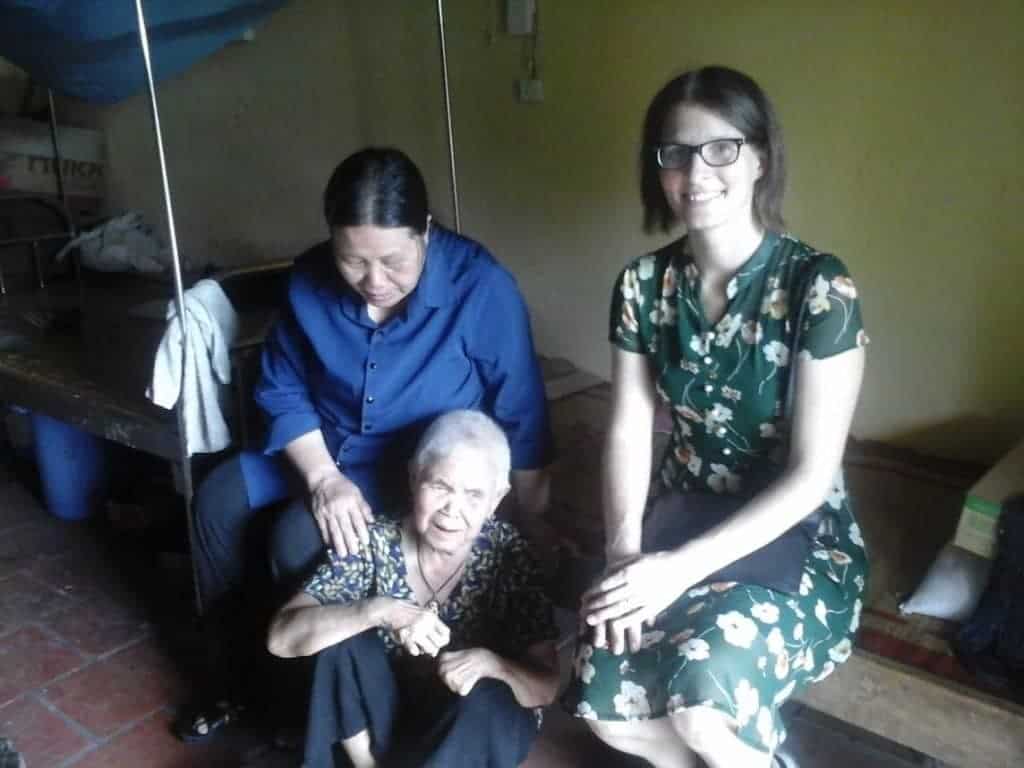
After eight years in the centre, Xuan joined one of the sisters but was subsequently transferred to another similar institution. She remained alone (to this day) and dedicated all her time from morning to night to three hundred lepers.
As the sister says, she really is never alone: ‘What I do, I do with the Lord.‘
To our question, how the patients accepted her when she came to the centre, the sister responded as follows:
‘At the beginning, life with patients was also quite demanding. They watched me with uncertainty, they were suspicious, they were not able to understand why I lived with them, and I wanted to help them. They needed some time to accept me and trust me.’
His love and mercy
Considering the fact that the Communist government at that time was very strict and changed the personnel that was not according to their desire, it was a miracle that she could remain as a Catholic in the centre. Reason?
‘God’s mercy,’ Xuan laughs. “Only His love and power make me able to work here for so many years and stay healthy.”
To live for others

Xuan starts her day at the office, where she first for eight hours regulates administrative matters and all those the community needs which are necessary to live and work smoothly.
The rest of the day is planned for visiting leprous patients. She regularly escorts them to treatment sessions at a nearby hospital, and helps them walk. She is available for their needs and responds every time they need her.
‘That’s why I came here,’ says the sister: ‘To give my life to all the leprous patients, I help them, I care for them and serve them.’
Meeting with God
When Silva and me travel around the world and encounter poor people, we are constantly figuring out how important it is a mission that the poor have in our society.
If I generalize, their task is to turn our eyes to God and teach us how to remain humble and trust him. They are our great teachers, so I often wonder if the term ‘poor’ is in place at all.
Leprous people do not have a look that attracts a man. In contact with them, you smell the unpleasant odor that is repulsive. It’s perfectly normal for people to be frightened and cautious when in contact with them.
Sister Xuan says: ‘If you did not see God in these people, you would definitely not be able to serve them for so long. It is them who give me the power and energy to work.’
Heart and mercy
When the sister came to the centre thirty years ago, she did not have the feeling that she could offer anything to those people.

‘But I knew one,’ she says: ‘God gave me heart and mercy, which I can share with them. In the beginning, I helped them with very simple tasks like cooking, washing their laundry, cleaning the rooms and personal hygiene.
Later, patients signed an anonymous petition asking the management of the hospital to send me to official training for the professional nurse. The petition was accepted and I went to study. Today, I know about the disease a lot and I can help them better. ‘
A disease that does not give up
Leprosy is first shown by changes in the skin. If not treated properly, the disease progresses rapidly. Leprosy spread throughout the body, bruises joints and extremities. In later stages their legs and hands are handicapped. Over time, they remain without them and need aprosthesis to move.
The nurse soon felt how painful it was for patients to be left without legs and hands. She wanted to help them, so she asked the hospital’s management to send her to a prosthetic course in order to be able to handle prostheses. She went to Ho Chi Minh and passed the course.
Workshop and gym
‘Here is my workshop,’ says Xuan proudly, when we are escorted to a special room with a large wooden table and metal tools: ‘As far as the individual can, I make special leather footwear.’
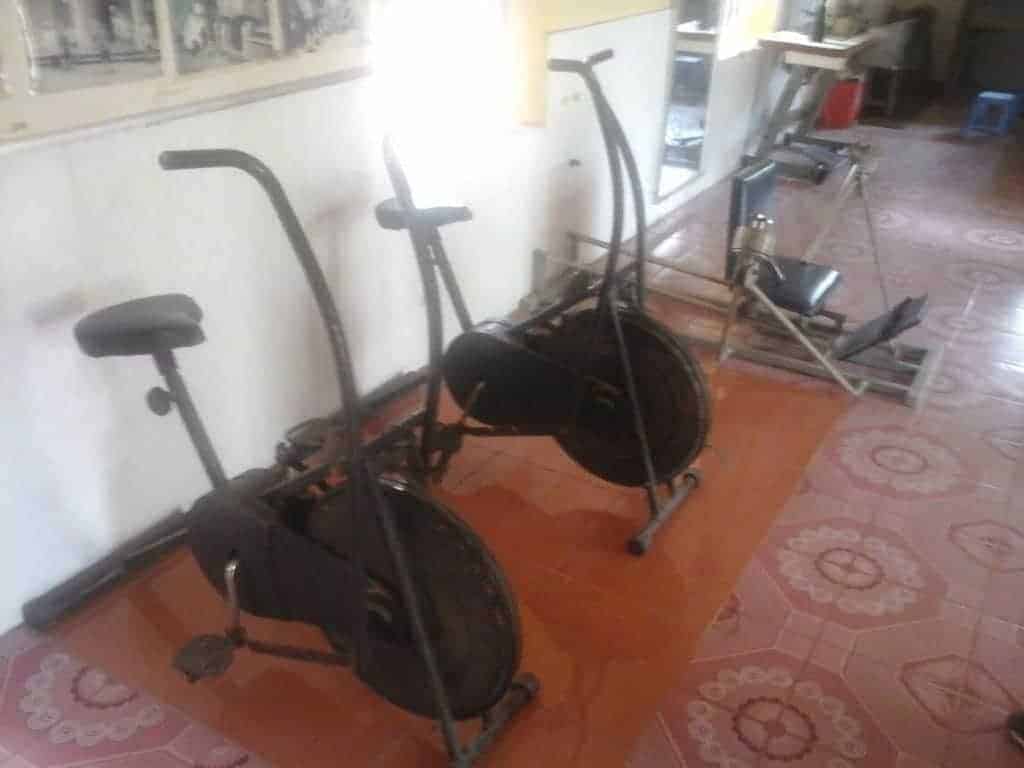
‘And here,’ shows: ‘are devices for muscular exercise and strengthening. With their help, the leprous people still have enough power to move and walk. Variable tools are simple but extremely efficient! ‘
Operando – anywhere!
When we met and talked with Sister Xuan, me and Silva were astonished. What is it that encourages a person to give his knowledge, talents and energy to people who are rejected by society in such fullness and selflessness?
When meeting people like her, the Operando is content and that is the real purpose of our trip. Also on the other side of the world, in a country that is not friendly to faithful Christians, God acts and uses people to become the tool of His love.
Why do you love me?
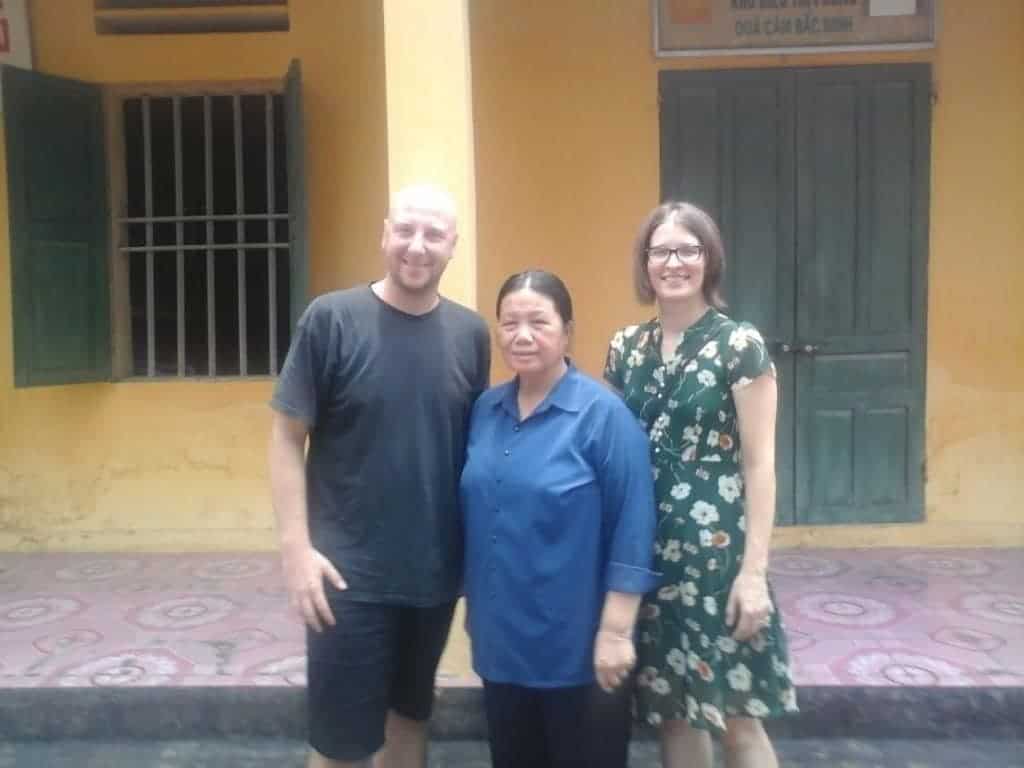
One day, the leper, whom the sister brought from the forest, asked Xuan:
‘Sister, why do you love me?’
And Xuan replied:
“Because God teaches us to love one another.”
A tool of love
The simple truth, which was transferred from the words of the Bible to life and came to life in this community. Many people, like Xuan, have been converted and become Christians.
Not because they would be ‘forcefully’ Christianized, as many missionaries did in the past. But because they have truly experienced and felt God’s love for the first time in their very essence.
Nace Volčič
